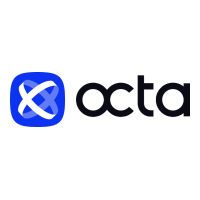When considering participation in the forex market, one common question that arises is whether commodity trading advisors (CTAs) are legal. The forex market is vast and operates globally, but the legality of CTAs can vary depending on the jurisdiction. This article aims to provide clarity on the subject by examining the regulations surrounding CTAs in the forex industry.
Understanding Commodity Trading Advisors
Commodity trading advisors are professionals or firms that offer advice on trading futures contracts, options, and foreign exchange. They often manage client accounts and execute trades based on their expertise. To operate legally, CTAs must comply with specific regulations set forth by governing bodies such as the Commodity Futures Trading Commission (CFTC) in the United States. These regulations ensure that traders are protected from fraudulent activities and that the market remains fair and transparent.
Regulatory Frameworks
In many countries, including the U.S., CTAs are required to register with relevant authorities if they manage funds or provide advice to clients. Registration typically involves meeting certain financial and educational criteria, as well as adhering to ongoing reporting obligations. For instance, in the U.S., CTAs must register with the CFTC and become members of the National Futures Association (NFA). This registration process helps maintain standards and ensures accountability within the forex industry.
Key Compliance Requirements
One of the primary compliance requirements for CTAs is transparency. They must disclose pertinent information about their services, fees, and potential risks associated with forex trading. Additionally, CTAs must adhere to anti-money laundering (AML) regulations and know-your-customer (KYC) policies. These measures are designed to prevent illegal activities and protect both the advisor and the client. Furthermore, CTAs are expected to follow ethical practices, ensuring that they act in the best interest of their clients at all times.
Risks and Considerations
While the regulatory framework provides a level of protection, it is important for traders to be aware of the risks involved in forex trading. The forex market is highly volatile, and even seasoned professionals can face losses. Therefore, it is crucial for traders to conduct thorough research and due diligence before engaging with any CTA. Understanding the terms of service and asking questions about the advisor's track record can help mitigate potential risks.
Global Perspectives
The legality of CTAs in forex can differ significantly across borders. Some countries may have stricter regulations, while others might offer more lenient environments for forex trading. Traders should always check the local laws and consult with legal experts to ensure they are operating within the bounds of the law. Additionally, staying informed about changes in regulations is essential, as the forex landscape is continually evolving.













